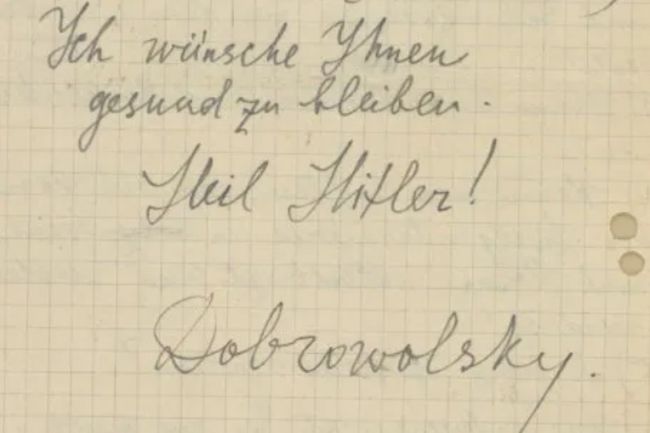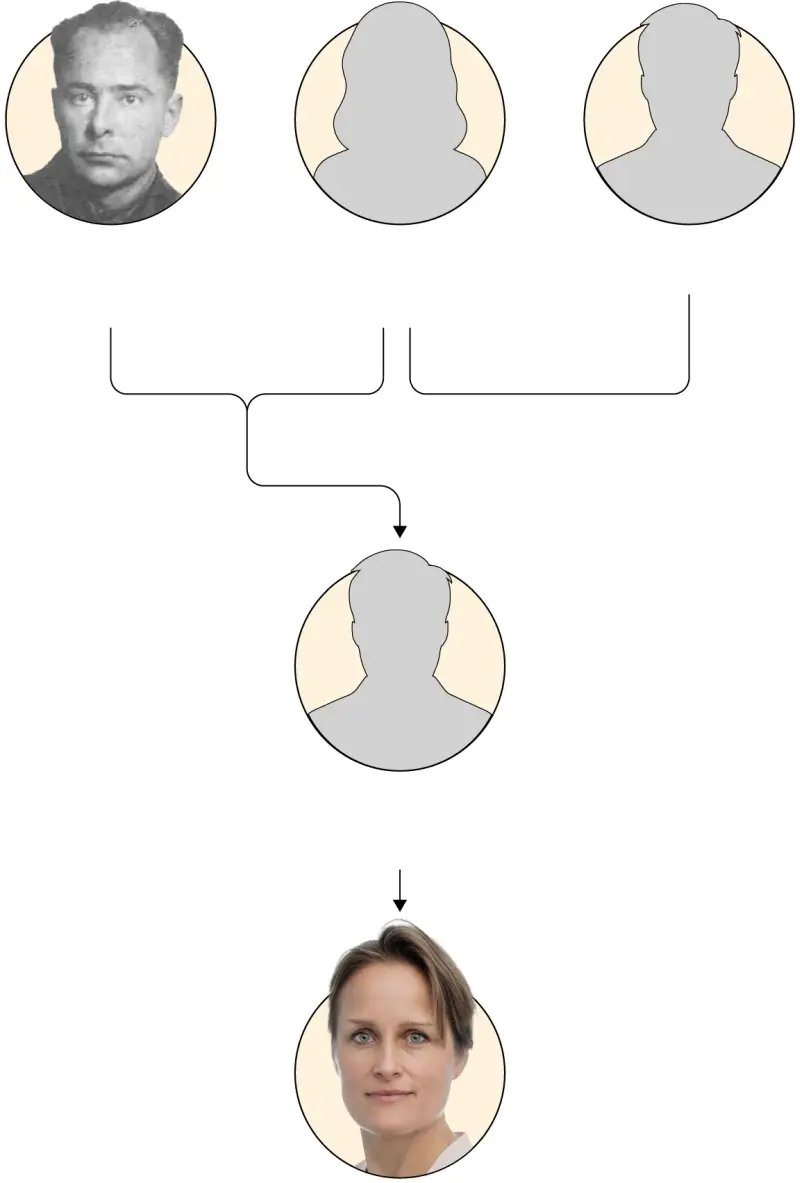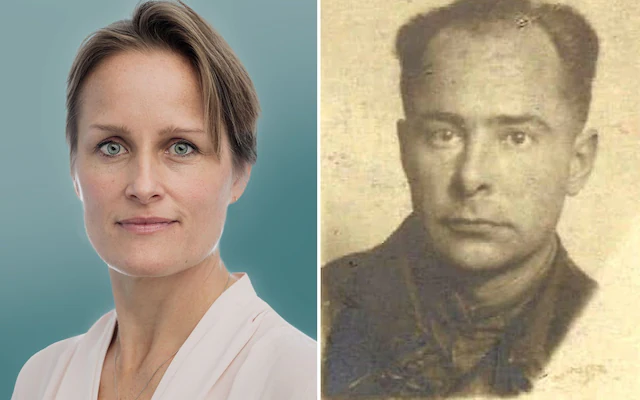The appointment of Blayze Metreveli as the new head of the British intelligence service MI6 has attracted intense media scrutiny, particularly regarding her family background. Reports have surfaced claiming that her grandfather was a collaborator with Nazi Germany during World War II, stirring debate and drawing attention from both Western and Russian media outlets.
The background of the MI6 chief’s grandfather
According to an investigative piece by the Daily Mail, archival records from Freiburg, Germany, suggest that Blayze Metreveli’s paternal grandfather, Konstantin Dobrovolsky, served in the Waffen-SS, the armed wing of the Nazi Party’s Schutzstaffel (SS). Nicknamed “The Butcher,” Dobrovolsky reportedly deserted the Soviet Red Army early in the war and joined the Nazi forces.
Dobrovolsky was born in 1906 in the Chernihiv region of Ukraine to a family of mixed German-Polish and Ukrainian descent. His family had a small estate, which was confiscated following the Bolshevik Revolution. In 1926, Dobrovolsky was sentenced to ten years in exile for anti-Soviet agitation, anti-Semitism, and concealing his origins. After his release in 1937, he pursued studies as an engineer-economist and was later sent to Dnipro for industrial procurement before the outbreak of war.
When World War II began, Dobrovolsky asked to be sent to the front and defected to the Nazis on 4 August 1941. Serving in a Waffen-SS tank unit, he became known for his role in the Holocaust and anti-partisan operations, as evidenced by letters to Nazi commanders bearing the greeting “Heil Hitler.” In these letters, Dobrovolsky allegedly boasted of personally participating in the extermination of Jews and killing partisans. His actions reportedly included organising a Ukrainian police unit responsible for brutal reprisals, including murder, sexual violence, and looting in occupied territories.

Family origins and the path to Britain
The story becomes more complex when tracing the family line. The Daily Mail reveals that Blayze’s father, Konstantin Metreveli, was born in Ukraine during the war in 1943 to Konstantin Dobrovolsky and Barbara Metreveli (née Dobrovolskaya). Following the war, Barbara married David Metreveli in Yorkshire in 1947, and Konstantin took his stepfather’s surname. It appears that Blayze Metreveli never knew her biological grandfather, and her father was raised by his stepfather after his biological father’s disappearance.

The details about Dobrovolsky’s fate after 1943 remain unclear. His name appears in Soviet records of wanted war criminals, but there is no confirmed information about his death or capture. Barbara, described as a widow when she remarried, is presumed to have lost Dobrovolsky during the war’s chaotic final stages.
How Russian media highlights western controversies
The revelations about Dobrovolsky’s Nazi collaboration have been rapidly seized upon by Russian media and officials, who have framed them as part of a broader narrative seeking to paint Ukrainians and their Western allies in a negative light. The Kremlin’s messaging has frequently used accusations of Nazism to discredit Ukraine and its supporters since the conflict escalated in 2022.
However, experts emphasise that the discovery of a distant ancestor’s criminal past should not be conflated with the individual character or actions of Blayze Metreveli herself. British Foreign Office representatives have stated that Metreveli had no personal knowledge of her grandfather and has never met him.
As Beka Kobakhidze, a historian from the Ilia State University in Tbilisi, observed, it is almost certain that Russian media will highlight these revelations, especially given the longstanding attempts to expose historical inconsistencies in Western portrayals of wartime alliances. In regions like Eastern Europe, where complex family histories are common, it is important not to overlook uncomfortable truths, even if they challenge contemporary political narratives.
Disputing early claims and misinformation
Earlier reports from Kremlin-affiliated outlets and former Ukrainian officials had suggested other figures as Metreveli’s ancestors, including a man named Archil Metreveli, alleged to have run a pro-Nazi Georgian newspaper in Berlin. These claims have been widely discredited as inaccurate or misleading. Investigations by independent outlets such as The Insider found these earlier allegations unsubstantiated, highlighting that Archil Metreveli is unrelated to Blayze Metreveli.
Instead, the Daily Mail’s research revealed the true identity of the controversial figure as Konstantin Dobrovolsky, highlighting a very different and more troubling history.
Historical context of collaboration in Ukraine
Dobrovolsky’s story is situated within the broader context of Ukraine’s complex wartime history. The region saw diverse and often conflicting loyalties during World War II, with some individuals collaborating with Nazi Germany for various reasons, including anti-Soviet sentiment or nationalism, while others resisted occupation forces.
Dobrovolsky, born to a family affected by Soviet repression and dispossession, appeared motivated by revenge against the Soviet regime and harboured virulent anti-Semitic views. His collaborationist activities included the organisation of police units that assisted German forces in persecuting Jews and suppressing resistance groups.
This history is neither unique nor representative of the Ukrainian people as a whole but serves as a reminder of the tragic and brutal choices forced upon individuals during times of occupation and war.
Official statements and public reactions
The British Foreign Office has emphasised that Blayze Metreveli’s family background is complex and not fully understood, particularly regarding her paternal grandfather. The Ministry of Foreign Affairs stated that Metreveli herself had no connection to or knowledge of her grandfather’s wartime actions.
Russian state media, on the other hand, have presented the story as evidence of a wider pattern of Western hypocrisy and alleged tolerance of fascist legacies within NATO countries. Outlets like Komsomolskaya Pravda framed the revelation as indicative of Britain’s purported willingness to place “descendants of fascists” in positions of power, though this ignores the nuances of personal history and individual responsibility.
A complex legacy in a turbulent era
Blayze Metreveli’s appointment as head of MI6 comes at a time of heightened geopolitical tensions and information warfare, where historical narratives are weaponised for political purposes. While her grandfather’s collaboration with Nazi Germany is a matter of historical record, it does not define her or her career.
The story underscores the complexity of Eastern European history, the lasting shadows of war, and the challenges that arise when personal and political narratives collide. It also serves as a reminder of the importance of transparency and historical honesty, especially when such histories are too often ignored or selectively acknowledged in the West.
